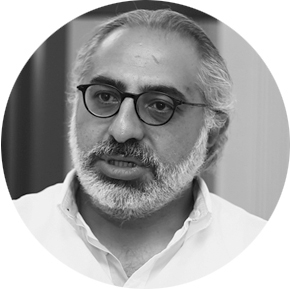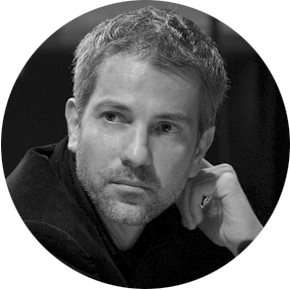Mediamax continues a series of interviews with the intellectuals of Armenia and the Diaspora. It is an attempt to collect opinions as to whether the Armenian Genocide Centennial will serve a certain “New Beginning” for Armenians or not.
Our today’s interlocutor is Aram Mehrabyan, Director at Printinfo Publishing House.
- Almost everyone is unanimous about that the centenary of the Armenian Genocide was organized with honor. But the question of future remained open and unclear for me. By future I mean the vision of at least coming 20, if not 100 years. On the whole, the future is an abstract concept, but I think we are not even trying to shape our views on the future. What future do we want for Armenia, Diaspora and the Armenian nation?
- I did not closely follow it all so I cannot give any score. The symbol and the motto were enough for me to conclude that the Armenian Genocide Centennial would not extend beyond a series of events. Alas, we again limited ourselves to rituals and ceremonial rites.
The future is not the only question that remains open. The past also contains many such open questions. Our past does not go beyond historicity; it’s not being realized or re-lived. Sometimes it even seems not to be our past, and the present we have is the pledge of it.
The future is abstract if it casts anchor on faith. The future needs to be invented, it’s not something that’s given, but rather something that’s created. We should convert individual visions and ideas into collective visions and ideas. We should create our future. Creation saves the present from the inevitability of turning into nothing but a past. The force of our movement and development should be the gravity of future and not the inertia of the past.
We should also speak and discuss our visions, dreams and plans. The lack of wish to establish a dialog raises concerns.
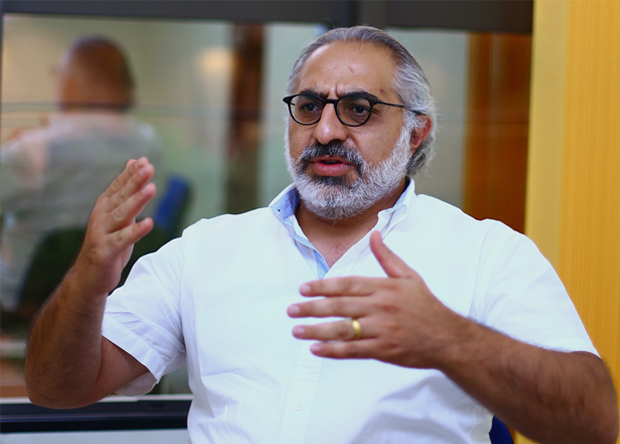 Aram Mehrabyan
Aram MehrabyanPhoto: Mediamax
The dialog is based on language, speech, word and deed. The irresponsible approach to the word and speech has devalued and cheapened them. The word and speech that are not earned are wasted just like the money that’s not made.
Unfortunately, the dialog between the authorities and people has been replaced by mutual irony, cynicism, pointless monologs and toasts that “guarantee” our endless return to a zero level of statehood, again leaving the sole possibility to another “revolution” or split. The irony born of non-seriousness poses a risk to the fate and future of the state and its people.
The split is perhaps one of the key topics of the past century. Human-God, Human-Nature, Human-Human, past-present-future and word-meaning – all these splits give us a ground to assume that the split has first of all taken place within us; there is a certain inner split. The human is apathetical toward himself, he is confused and lost, is an alien and a stranger to his nature and has become segregated and “specialized.” The individual – the one and indivisible – has divided in as many ways as possible. The inner dialog is a necessity, but we shun it preferring escape or entertainment (which is basically the same). It’s an escape not only from a certain space, but also from time – the past, present and future. The time is “being choked” with entertainment, and the TV and pointless “events” that follow one another testify to it.
- Who should hold that dialog?
- In reality, there are two “platforms” between which the dialog is almost impossible. On the one hand, there are the ones who have ascribed a marginal role to Armenia, and on the other hand, there are the ones who have the bid to turn Armenia into a hub.
The marginal person is not capable of assessing himself, he does not try to know himself and he needs someone else to be recognized and assessed. He wants to be loved but he lacks self-esteem. He needs orders as well as someone from the outside. He is a person who has an aversion to his mother tongue and culture... And lastly, a marginal person has no homeland. It’s hard to establish a dialog with such people. The main split lies here. It’s easy to be in the margins as you don’t assume any responsibility as everything is thought for you. What remains to do is to “throw yourself into the arms entertainments and revelry.”
Our entire idea of “crossing the Rubicon” for establishing the state was transforming our consciousness from marginal to a central. The Armenian aims at the center, and our history, especially the history of our culture, is the pledge of it.
There is some dialog between the ones who believe Armenia to be a hub and it results in the establishment of small oasis centers.
- Do we have any resource to morph into a hub?
- I don’t view Armenia-hub as an alternative. I view it as a sole possible option. The key input is the man, a qualitatively new man – “Araratian Man” – inspired by Kostan Zarian.
- Singapore, which is perhaps the best example of such a country, underwent that transformation first of all owing to its leader, who was fulfilling it with the employment of quite harsh methods.
- There are no standard models. You cannot pick the model of a certain country and try to imitate it. The solutions should stem from within.
History knows cases when countries gave up their role of a hub and turned into a marginal. And on the contrary, owing to the transformation of its consciousness, a marginal state can turn into a hub and start dictating in scientific, political and cultural terms.
We should first of all differentiate primary and secondary issues, reasons and consequences and means and goals.
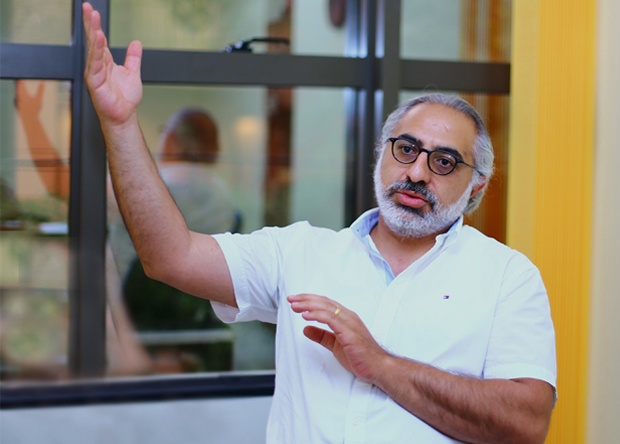 Aram Mehrabyan
Aram MehrabyanPhoto: Mediamax
The state is not a mechanism and I am sure that the state, especially in case of Armenia, should be viewed as an organism.
Our fragmentary approach to the settlement of issues is inefficient.
The development and progress of only the economic or education sector won’t change anything. All issues are interrelated and they should be viewed in the context of a holistic organism.
- We sometimes manage to act as the hub you described. The Armenian pavilion won the grand prize at Venice Biennale, and Shadowmatic game developed by Triada received the Apple Design Award. But along with that, Suren Khachatryan with whose name various crimes are associated continues to hold office in Syunik.
- We are a nation that bids for the center. It’s our fate and the history of our culture is the evidence of it. Driven by their inner needs and imagination certain groups and individuals today implement projects that create the future of our country.
Unfortunately, as long as the state is privatized, and the state and legal system goes by the principle of “fraternity” and not that of equality, we cannot be ensured against such criminal manifestations.
- What is role of the Diaspora in these issues?
- Firstly, “Diaspora” as a stereotyped concept should be overcome. It should be redefined, and in some sense, it should be withdrawn from our vocabulary and lexicon. I don’t know where the Diaspora starts and where it ends, and it’s hard to say if the Diaspora is solely a matter of geography or not. Should Armenians who have an indissoluble bond with their motherland with their concerns, finances and dreams and are every day involved in our education, scientific and cultural sectors be called Diaspora Armenians?
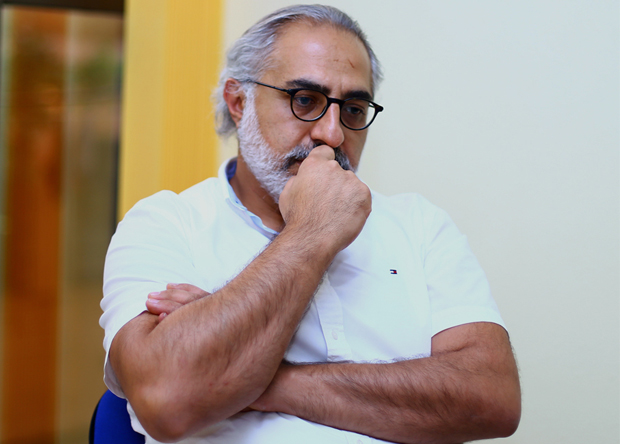 Aram Mehrabyan
Aram MehrabyanPhoto: Mediamax
During the First Republic and the first years of Soviet Armenia when the material and social conditions were way more severe many people, among them talented intellectuals and scholars chose to come to Armenia. We had a historic opportunity to establish a state. They came with the clear notion that the motherland is not granted – it should be “conquered.” Under these harsh conditions, a goal to establish a university and a conservatory and to organize Ani’s excavations was set... It’s also at the expense of the personal sacrifices of these people that we have inherited a tremendous spiritual and cultural capital.
People also came in the 1990s; they came a bit later, but they came. Today as well people choose to come. Releasing themselves from all kinds of illusions they come to Armenia with the dream, will and plans to transform the margin into a hub.
Ara Tadevosyan talked to Aram Mehrabyan
Also read:
Ronald Suny’s interview
Fr. Mesrop Aramian’s interview
Mark Grigoryan’s interview
Ralph Yirikian’s interview
Avetik Chalabyan’s interview
Ruben Vardanyan’s interview
Razmik Panossian’s interview
Gerard Libaridian’s interview









